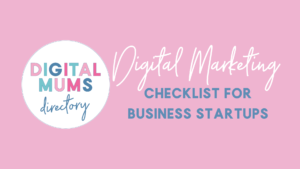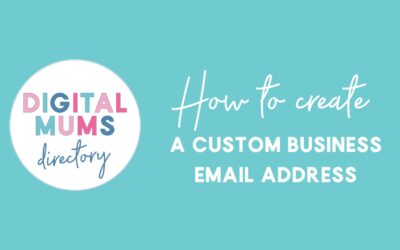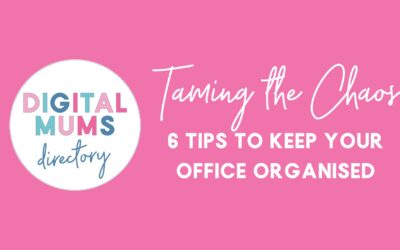Guest Post from Amy Stutt at Skydive Geronimo WA.
 Congrats! You’ve taken a very courageous step and started your own business. Now the challenge is to tell people about your awesome new brand and why they should choose it.
Congrats! You’ve taken a very courageous step and started your own business. Now the challenge is to tell people about your awesome new brand and why they should choose it.
Enter digital marketing.
Don’t be intimidated by all the noise around internet marketing activities. Yes, digital marketing is a hot topic, but using it to achieve online visibility for your brand doesn’t have to involve a complex or costly strategy. There are plenty of ways of getting your brand in front of your target audience and successfully raising your online profile – it just takes some careful planning and diligent execution.
We’ve drawn up a step-by-step checklist to help you establish an effective online presence for your startup. Plus we’ll give you some extra tips to amp up your visibility.
Seven steps to get your startup found online
1. Create a unique brand identity
You want your brand to stand out from the competition. A strong identity that reflects the brand’s personality and values is the launch-pad for your digital marketing campaign. Without a strong name, professional image and impactful visual identifiers such as a logo and corporate colours, your brand won’t stand out from the clutter.
Tip: Make sure your branding is consistent across all marketing collateral, digital and otherwise.
2. Ensure your website is built properly
A well-designed and user-friendly website is a must for all startups.
Even if you’ve got a bricks-and-mortar business and don’t envisage ecommerce being a thing for you, your website is the most public face of your brand there is and it’s imperative that it looks professional, is highly functional and that it’s optimised for online visibility (ie SEO).
It needs to look good and be easy to navigate, with useful elements like a search function and comprehensive drop-down menus. The quality of your content is paramount, and you need top-quality images and graphics. Your website must also be optimised for mobile devices because that’s where most people are conducting their lives these days.
Tip: Design your website to reflect your brand. Keep the design clean and uncluttered, with lots of helpful content that answers your customers’ questions.
3. Get going on your socials
Establishing a social media presence is a must for digital marketing success.
Instagram, Facebook, Twitter, Pinterest, TikTok, LinkedIn and YouTube are among the most popular socials today, and they all offer great opportunities to enhance your startup’s visibility, attract traffic to your website and build relationships with your customers.
Tailor your socials to meet your marketing objectives eg if you’ll be relying on visual content, Instagram would be a good fit, while YouTube or TikTok would be best if video content is a priority.
It doesn’t cost to set up these accounts and the rewards can be significant, but you do need to commit to creating and publishing quality content regularly.
Tip: Be creative and get ideas from your competitors. If they create hashtag campaigns or post special deals and discounts regularly, make sure your content and offers are better than theirs.
4. Start a blog
A blog is a fantastic digital marketing tool.
Structure your website so that you can post and categorise your blogs where users can find them easily and get writing! Choose topics that are relevant and useful to your users and remember to use your SEO keywords in your content too.
In fact, videos can be even more engaging and shareable than a blog. ‘How-to’ videos or discussions on YouTube are an excellent way of attracting and educating new audiences about your business startup.
Tip: Add internal links to your blogs as an effective tactic to boost your online visibility.
5. Consider email marketing
Email marketing is one of the most cost-effective digital marketing strategies. It generates positive results and provides optimal ROI.
Emails are a great way to reach existing customers and potential buyers and help build brand loyalty for your startup. A well-crafted email can help nurture prospects and convert them. But remember, your content has to be click-worthy (not irritating click-bait) and has to offer readers something useful, like a solution to a problem.
Tip: Targeted emails are best, so consider segmenting your email list and personalising your message. The content should satisfy the requirements of that particular segment and help to build a relationship with them.
6. Consider paid advertising
Online advertising can be a really valuable tactic for driving traffic, boosting visibility and increasing sales, but they’re generally more useful after your start-up has gained some traction.
An example of a paid advert is Google Ads, which puts your website right at the top of the search engine pages. Other ways of paying for your digital presence include collabs with influencers and sponsorship of podcasts.
Why excellent customer service is the first ground rule of digital marketing
You can tick off all the elements of this step-by-step guide with heightened online visibility as your goal, but it’ll all amount to nothing if your customer service is lousy.
Everyone has a voice in the online world, and unhappy customers are quick to make theirs heard. Don’t risk your reputation by not responding to complaints or taking too long to reply to a customer’s query.
By making customer service a priority and offering genuine, polite, respectful and helpful feedback to every customer interaction, you’re likely to win customers over. Tools like live chat, having a comprehensive FAQ section on your website, offering responses to public and private comments on social media and picking up the phone will all help to boost a positive perception of your new brand.
Tip: Publish a timeframe for a response to a customer query (eg 24 or 48 hours) and make sure you stick to that promise!
A final word on digital marketing for business startups
Regardless of which digital strategies and channels you use, it’s crucial that customers recognise your brand at each touch point. A cohesive experience is imperative. Your brand persona needs to be uniform across all channels so that customers immediately recognise your business, regardless of where and how they are engaging with you.
Looking for help with your marketing?
If you need help with your marketing, take a look at our marketing strategist experts on the Digital Mums Directory. One of these experts will be perfect for your business and to help you with your next website.
Guest Post from Amy Stutt
Amy Stutt is co-owner and sales manager of award-winning adventure tourism company, Skydive Geronimo WA.
She has a wealth of experience in the travel and tourism industry as well as several academic and professional qualifications, including an MBA from Murdoch University. Amy is a respected board member of Destination Perth and chair of its Governance, Risk and Audit Committee. She is also an active member of Women in Tourism and Hospitality (WITH) and the Rottnest Chamber of Commerce.
Since jointly establishing Skydive Geronimo WA in 2010, Amy and her husband Glenn have grown the business into an award-winning operation with a reputation for professionalism, integrity and innovation. As a result of her outstanding stewardship, Skydive Geronimo has become widely acknowledged as the premier tandem skydiving experience in Australia and has been a significant contributor to Rottnest Island’s global status as a ‘must visit’ destination.
Genuis Ideas For Turning One Piece Of Content Into 13 New Bits
You may not be able to turn water into wine, but it is possible to reincarnate one piece of content into at least 13 fresh bits (or is that bytes?). As always with content, the number one priority for digital marketing success is quality. Great content helps you get...
How to create a custom business email address
Let people know you mean business by having a *real* email address when they are dealing with your business … even if you don’t have a website yet! Read on to find out how and grab a sneaky discount.
Taming the Chaos: 6 Tips to Keep Your Office Organised
Are you the type of person that has piles of ‘stuff’ all over your desk? Have you got a mountain of filing to be done [how old school of you!] or what feels like millions of e-mails to respond to? How about your desktop? Does it look like a kid has scattered icons...



